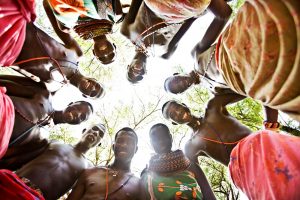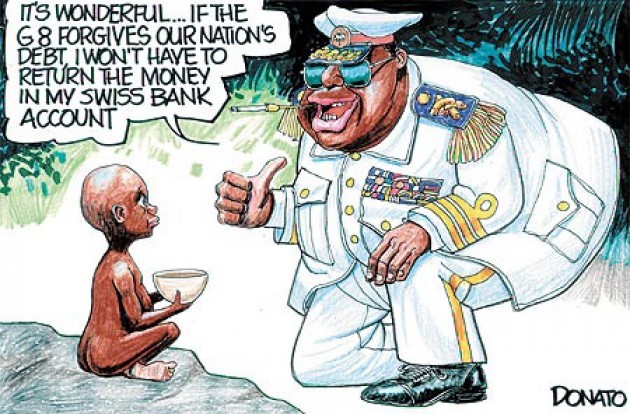“Philanthropy can be an important part of the solution set. Philanthropy done well not only produces direct benefits for society, it also reduces dynastic wealth.”- Bill Gates.
A broad understanding of the concept of philanthropy would be, the act of giving by individuals or organizations for public good with the aim of improving the well-being of a person, a group of people or humankind. Contrary to charity that intends to address the immediate needs of the beneficiaries, philanthropy is an investment in individuals or organizations who promote progressive systemic changes that help transform society for the better. In Africa, the idea and practice of philanthropy remains a very controversial issue that continues to spark heated debates on its role in addressing the problems of poverty and inequality on the continent. Long after colonialism, Africa is still heavily dependent on the good deeds of power houses in the advanced western world, which persistently make investments in socio-economic projects in Africa, in the name of guiding the continent towards sustainable development and economic prosperity, while pursuing hidden agendas.
Regrettably, most of these ‘good intentions’ have ended up doing more harm than good; transforming most African countries to Aid dependent addicts, stock in the devastating cycle of fraud and corruption. In 2011, according to the OECD, official development aid to Liberia totaled $765 million, and made up 73% of its gross national income. This sum was presumably larger than that of the previous year. In 2013, every one of the 25,000 students who took the exam to enter the University of Liberia failed despite the huge investment in education. The Food Aid and the unconditional cash flow over a long period of time in chronically food insecure areas like Somalia and Ethiopia, have been known to deliver short term gains but, resulting in long term dependence on aid and the widening of socio-economic gaps even further.
This misplaced understanding of philanthropy has proven the theory that, solving the twin problem of poverty and inequality in Africa needs more than just a good deed. Corruption and poor management of funds will continue to undermine the noble course of philanthropy if nothing is done to guarantee the proper utilization of funds. Identifying a cause, defining a clear mission prior to the donation and directing funds to the appropriate organizations, trustees and staff who share fundamental principles with the donor or investors, are fundamental components of providing result oriented services. The former British Prime Minister David Cameron once pointed out, eradicating poverty in other words fighting inequality, means effecting certain institutional changes such as rights for women and minorities, a free media and integrity in government. Poverty and inequality are created by economic institutions within a country which systematically block incentives and opportunities of poor people to improve their lives, their communities and their respective countries at large.
Discover how Africans Youths are breaking the corruption chain

Such extractive institutions have played a key role in stifling any attempts to weaken their strong hold and poisonous influence on the African economy and the African people. Take for instance the Marxist dictatorship of Ethiopia’s Mengistu Haile Mariam. Ethiopia has been a major recipient of funds for famine relief, a portion of which was used illegitimately by Mengistu’s regime to forcibly resettle large segments of the population. These funds were specifically used to buy trucks for the resettlement scheme. Relief ships were equally held for ransom and charged $50.50 per ton for permission to unload their aid, some of which was confiscated to feed the army. The New York Times also reported that aid officials believed that, Mengistu’s regime sold some of the food aid on the world market to finance the purchase of arms. In the Congo donated food supplies were also sold and the funds were used to purchase an arms factory from Italy. Moreover, the Arab Spring which began in North Africa in 2010, owes its origin to such political misrule which is a major hindrance to economic development across the African continent.
In view of such deeply rooted institutional challenges, philanthropy can only help when politics of African societies is completely overhauled or improved to enable the empowerment of the underprivileged and the excluded who are often repressed by such monopolizing powers. Aid needs to be used in such a way as to help mobilize the civil society; get the people more involved with decision-making thereby, giving them a significant voice in the initiation and management of such sustainable investments within their local communities. Increasing the presence of Africans in local NGOs and the charity sector is imperative. Such “People-oriented Programmes” propel the concept of African philanthropy onto the center stage. Influence Africa is a social enterprise organisation geared towards promoting the long-term growth, competitiveness and sustainability of Africa. It describes African philanthropy as a daily practice that is supported by individuals, groups and communities that is based on sharing and togetherness irrespective of the people’s living conditions. In short, African philanthropy embodies values of empathy, humility and solidarity.
Graça Machel notes, “There are differences in ideological paradigms of philanthropy between the West and Africa. In Africa, a cause is identified, ideas generated and then the scope of activities is defined. At the end comes the question about where money to fund these activities will be found. It is the reverse in developed countries, where people first acquire money and then identify a cause.”
Find out more about African solidarity through Melting Pot Development
Corporate philanthropy is equally breaking grounds in Africa as African organizations especially in Nigeria, are being called upon to take responsibility for the ways their operations impact societies and the natural environment. Foundations like The Tony Elumelu Foundation seek to identify and groom African business leaders and entrepreneurs to achieve the foundation’s central objective of enhancing the competitiveness and growth of Africa’s private sector. Based on a City Press Report, the Ugandan businessman Ashish Thakkar gives mentoring programmes using “business speed dating.” Meanwhile, Benin-born singer Angelique Kidjo used her celebrity status in 2009 to propel her philanthropic causes by donating the song ‘You Can Count on Me’ that bought a tetanus vaccine each time it was downloaded.
Philanthropy is only a part of the solution to the problem of inequality. It can only bear fruits when the uncontrollable accumulation of dynastic wealth in Africa becomes a taboo; and the grass root people are finally set free from the choking chains of greed by a privileged few.





